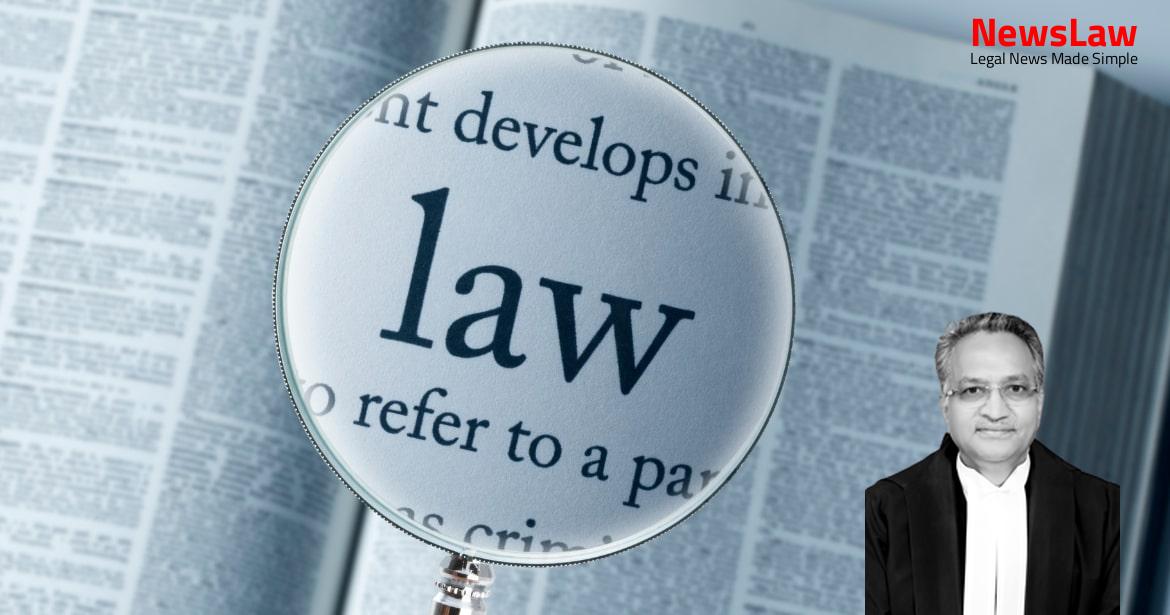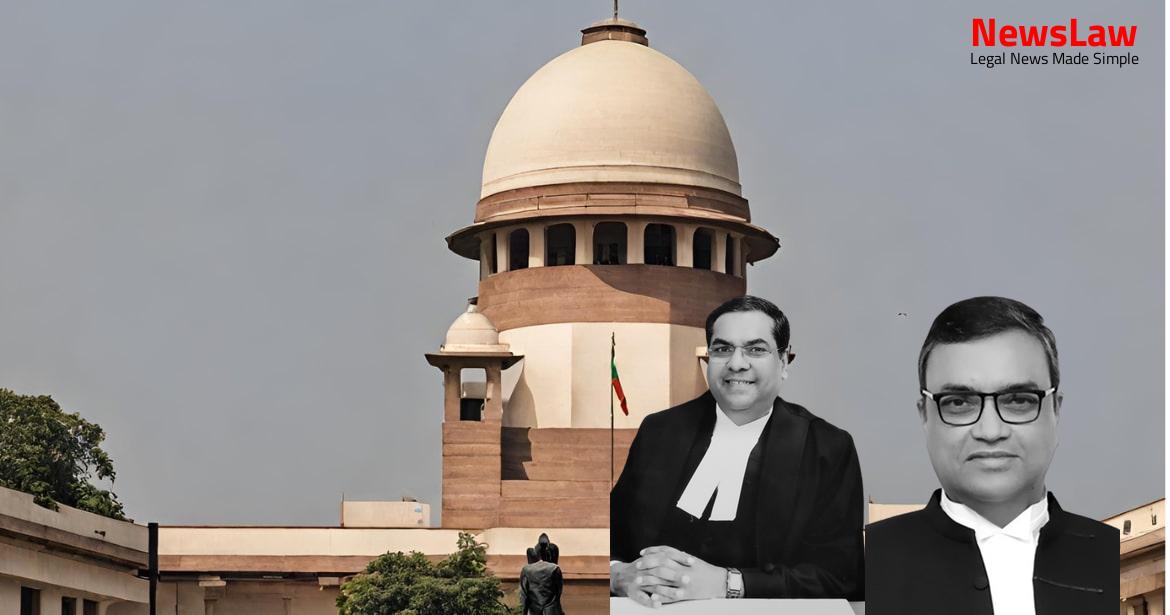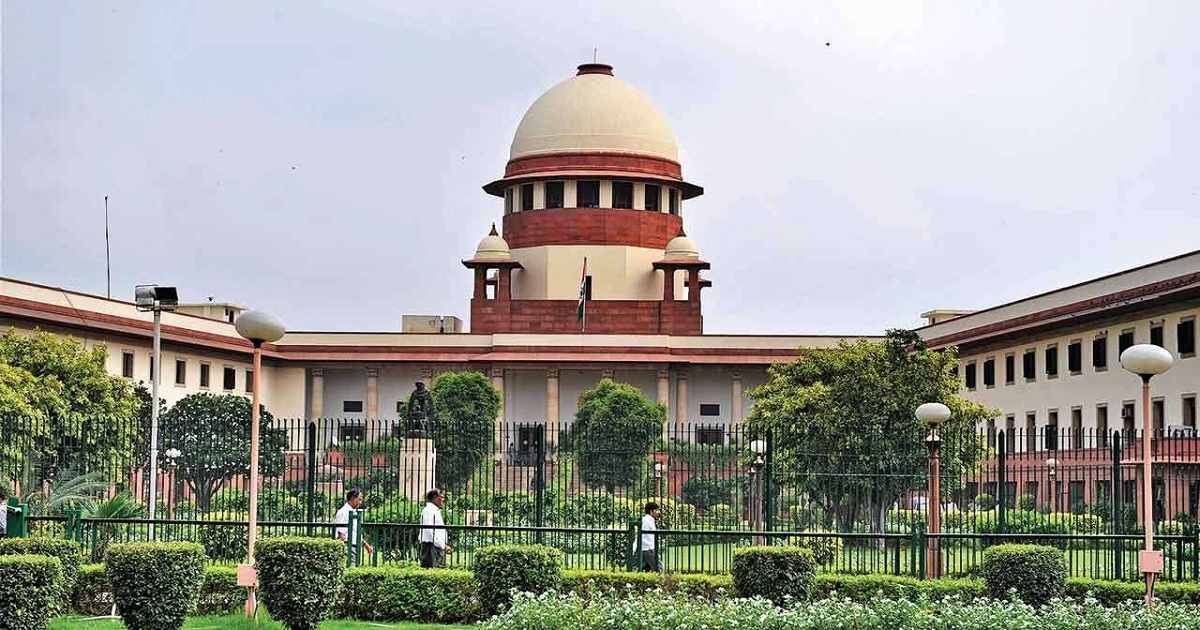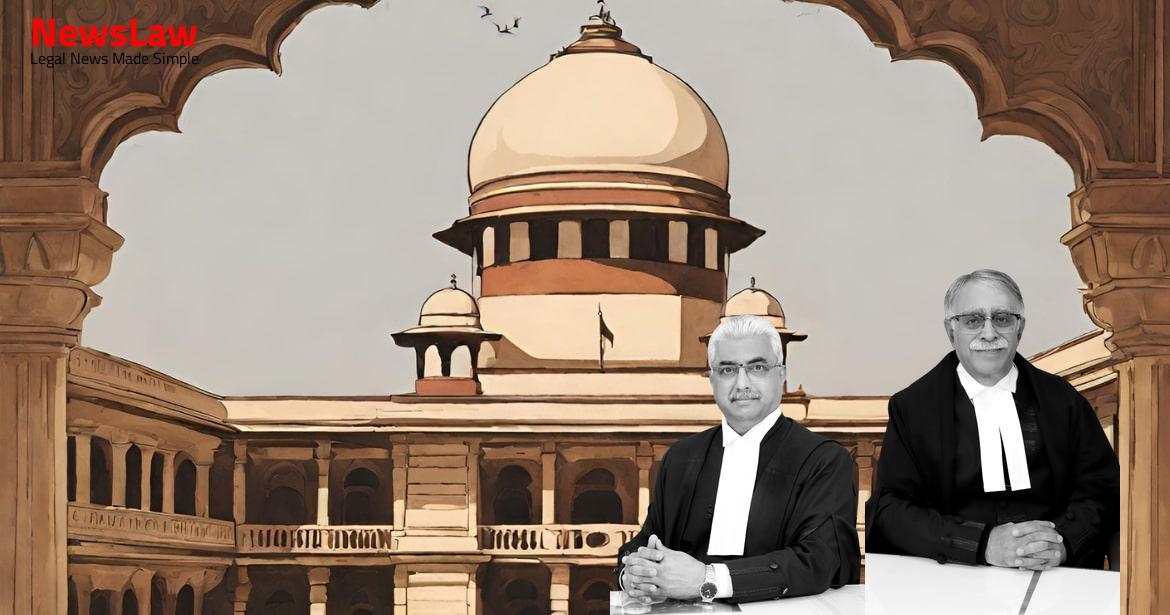In a significant legal case concerning a land dispute, the Supreme Court of India issued a specific performance decree. The judgment addresses the readiness and willingness of the plaintiffs in the case of Balaprasad Parandekar v. Janardhan Bhagat. Discover the key highlights and implications of this ruling on land transactions and contracts.
Facts
- The plaintiffs sought the relief of specific performance of the agreement for sale of agricultural land in Survey No. 64 admeasuring 50 acres and 39 gunthas.
- The suit was filed jointly by the late Shri Chandulal Balaprasad Parandekar, who expired during the pendency of the suit, and his daughter was taken on record as a plaintiff.
- The defendant Nos. 1-3 claimed that the agreements were executed as collateral security for a loan and not for the sale of the property.
- The plaintiffs were required to prove readiness and willingness to perform their part of the contract by getting the sale deed executed within the specified time limit.
- The reliefs claimed in the plaint included ordering the defendants to execute the sale deed, payment of earnest money, damages, and costs of the suit.
- The defendant Nos. 4 and 5 were joined in the suit as subsequent purchasers of a part of the land in question.
- Various applications were made regarding the substitution of legal representatives, and some were granted while others were rejected.
- The High Court decreed the suit for specific performance with an enhanced sale consideration based on the market value of the land.
- The High Court found that the plaintiffs had proved their readiness and willingness to perform their part of the contract.
- The High Court considered multiple factors in fixing the market value of the land at Rs. 10,000/- per acre.
- The Trial Court dismissed the suit for specific performance, stating that the agreements were executed as security for a loan and not for the sale of the property.
- The First Appellate Court affirmed the Trial Court’s findings but noted that the plaintiffs failed to prove the amount was not a loan as claimed by defendant Nos. 1 to 3.
- Legal notice was issued after the deadline for signing the sale deed had passed, leading to a supplementary agreement.
- The agreements did not mention any loan transaction, leading the High Court to conclude they were not for collateral security against a loan.
- A substantial question of law arose regarding the sale transactions executed during the suit’s pendency.
- The High Court decreed the suit for specific performance, with conditions for payment and execution of sale deeds.
- The First Appellate Court held that despite the transactions being affected by lis pendens, the validity of sale deeds to defendant Nos. 4 to 6 was not affected.
- The High Court overturned previous findings on the nature of the transaction and readiness and willingness of the plaintiffs.
- The Trial Court declined specific performance but awarded the alternative relief of money recovery.
- The First Appellate Court affirmed the Trial Court’s decision.
Also Read: Balancing Justice: Case Summary of C.P. No. 16/2017
Issue
- Principal issue for determination is whether the High Court was justified in entertaining the second appeal and upsetting the impugned judgment and decree.
- The First appellate Court specified circumstances indicating that the documents were for collateral security for a loan, not for selling the land.
- The key question is whether the agreements dated 20.09.1965 and 28.04.1966 were for sale or for security towards a loan taken by the defendants.
- High Court admitted the second appeal and formulated substantial questions of law related to readiness and willingness of the plaintiff in a specific performance suit and the true nature of the transaction.
- Three-fold basic questions need addressing for determining the point regarding the nature of the transaction between the plaintiffs and defendants 1 to 3.
Also Read: Interpreting Section 14 of the 2002 Act: Equivalence of CJM and CMM
Arguments
- Learned counsel for the contesting respondent argued that the agreements were for sale, not security, due to lack of interest provision or repayment terms.
- Plaintiffs’ readiness and willingness were not denied by the defendants.
- Repeated payments by plaintiffs showed their readiness and willingness to perform the contract.
- Reference made to the decision in A. Nawab John and Ors. v. V.N. Subramaniyam: (2012) 7 SCC 738.
- The High Court rightly set aside the perverse finding of the First Appellate Court.
- Delay in seeking specific performance was considered fatal to the plaintiffs’ case.
- Counsel referred to and relied upon decisions in Azhar Sultana v. B. Rajamani and Ors.: (2009) 17 SCC 27; Veerayee Ammal v. Seeni Ammal: (2002) 1 SCC 134; and Pushparani S. Sundaram and Ors. v. Pauline Manomani James (deceased) and Ors.: (2002) 9 SCC 582.
- Appellants were bona fide purchasers unaware of prior transactions, specific performance decree should not have been granted.
- Market value calculation by the High Court was challenged.
- The High Court erred in assuming readiness and willingness of the plaintiffs against the evidence on record.
- Inadequate payment as earnest money was cited as evidence of plaintiffs’ lack of readiness and willingness.
- The sale to subsequent purchasers by the vendors was deemed not illegal or void ab initio.
- The appellants argued that the plaintiffs were not capable of paying the remaining sale consideration as evidenced by only paying Rs. 500 in the supplementary agreement.
- There was complete silence from the plaintiffs between the supplementary agreement in 1966 and filing the suit in 1968.
- The appellants were not considered bona fide purchasers of the property and their transaction was affected by the doctrine of lis pendens.
- Reference was made to the case of Guruswamy Nadar v. P. Lakshi Ammal regarding the issue of bona fide purchase.
- The High Court’s decision to balance equities by directing the plaintiff to pay enhanced sale consideration was acknowledged as justifiable.
- The readiness and willingness of the plaintiffs to perform their part of the contract was questioned based on the statements of plaintiff No. 3 and plaintiff No. 2.
- The plaintiff’s conduct in seeking specific performance should not be inequitable, and they must be found standing with the contract.
Also Read: Judgment by Supreme Court of India in M/s. Bhilwara Processors Ltd. vs. Department of Central Excise
Analysis
- The High Court found that the plaintiffs were always ready and willing to perform their part of the contract, despite the defendant’s argument.
- The agreements in question were determined to be for the sale of the property, not for security against a loan.
- The High Court correctly disapproved the findings of the subordinate courts, which were deemed baseless and irrelevant.
- The doctrine of lis pendens was applied, rendering subsequent sale transactions illegal during the pending suit.
- The High Court’s decision to entertain the second appeal was justified, as the findings of the lower courts were flawed and based on incorrect considerations.
- In India, the rule of equity in England does not apply to specific performance suits
- Delay cannot be a ground for refusing relief in India as the statute prescribes a period of limitation
- Court discretion in India differs from England regarding specific performance
- In Azhar Sultana case, the suit for specific performance was filed after the property was sold, but monetary compensation was awarded
- Reasonable time for performance by the plaintiff depends on the contract terms and circumstances of the case
- High Court found defendant purchasers not bona fide in Pushparani S. Sundaram case
- Once a suit has been filed regarding a property, the court can allow the plaintiff to amend the plaint to include additional relief related to the property.
- The court is empowered to grant relief for possession, partition, refund of earnest money, etc., in cases of specific performance of a contract for the transfer of immovable property.
- The pendency of a suit or proceeding is considered from the date of presentation of the plaint until final disposal and satisfaction of the decree or order.
- The court can grant relief for possession, partition, and other entitlements in addition to specific performance, as requested by the plaintiff.
- The High Court enhanced the sale consideration of the land to Rs. 10,000/- per acre due to higher valuation at the time of the judgment.
- The plaintiffs prayed for alternative reliefs including recovery of amount paid with interest and compensation of Rs. 15,000/-.
- Plaintiff No.3 stated he was not entitled to the land and relinquished rights in favor of plaintiff Nos.1 & 2.
- Plaintiff No.1 and Plaintiff No.2 passed away during the case, with Plaintiff No.4 being the legal representative.
- Plaintiff No.2 mentioned during deposition that if specific performance wasn’t granted, alternative relief and compensation with interest could be considered.
- Instead of specific performance, the High Court awarded Rs. 15,00,000/- as compensation to Plaintiff No.2.
- Appellants provided a valuation report indicating market values of land.
- The appellants have been in possession of the land for a long time.
- Predecessors of Plaintiff No.2 made a payment of Rs. 6,000/- in the past.
- The High Court observed subsequent purchasers were in possession of the land for about 40 years.
Decision
- The High Court ordered the plaintiff to pay Rs. 10,000 per acre to defendant Nos. 4 to 6 within two months.
- If the plaintiffs fail to pay, defendant Nos. 4 to 6 will pay the same amount to the plaintiffs to confirm ownership.
- The land is to be used for self-cultivation or horticulture.
- The remaining amount is to be paid at the time of sale deed.
- Breach of conditions will lead to action, and the land will be free from any charge.
- Possession will be delivered at the time of sale deed after harvesting the existing crops.
- The land is agreed to be sold for Rs. 450 per acre for a total price of Rs. 22,951.
- The plaintiffs are entitled to specific performance of the contract and possession from defendant Nos. 4 to 6.
- Plaintiff-respondent No. 2 can withdraw Rs. 5,10,000 already deposited.
- The sale transaction is scheduled to be completed on a specific date.
- Plaintiffs must pay compensation within two months.
- The sale deed expenses are to be borne by the plaintiffs.
- The specific performance of agreements is set aside, and compensation of Rs. 15,00,000 is awarded to plaintiff-respondent No. 2.
- Interest of 6% per annum will be applicable if the compensation is not paid within two months.
- All heirs must sign the sale deed for the remaining land to be delivered.
- Each party will bear their own costs.
Case Title: MADHUKAR NIVRUTTI JAGTAP . Vs. PRAMILABAI CHANDULAL PARANDEKAR (DEAD)
Case Number: C.A. No.-005382-005382 / 2007



